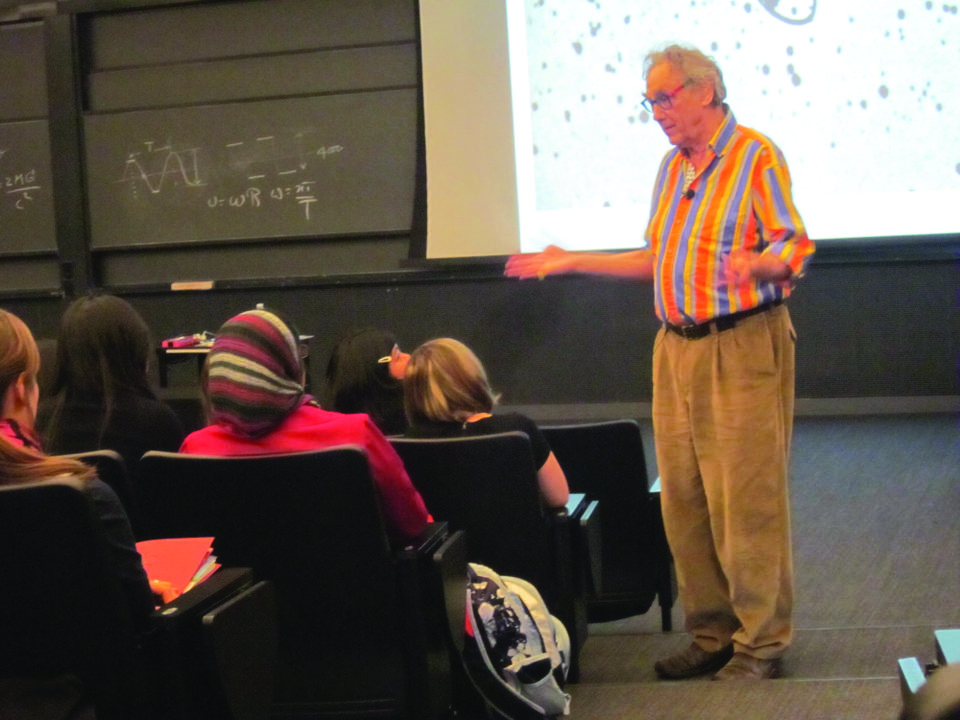
News
Summers Will Not Finish Semester of Teaching as Harvard Investigates Epstein Ties

News
Harvard College Students Report Favoring Divestment from Israel in HUA Survey

News
‘He Should Resign’: Harvard Undergrads Take Hard Line Against Summers Over Epstein Scandal

News
Harvard To Launch New Investigation Into Epstein’s Ties to Summers, Other University Affiliates

News
Harvard Students To Vote on Divestment From Israel in Inaugural HUA Election Survey
Research Conference Stresses Diversity

Speaking at the second annual National Collegiate Research Conference, MIT physics professor Walter H. G. Lewin kicked off the three-day symposium with a bang—the big bang. Lewin delivered the keynote speech on astrophysics before a group of science, humanities, and social science researchers during the event, which focused on the theme of collaboration in research.
The conference brought more than 200 students from dozens of schools to Harvard to present their research, participate in workshops, and learn from peers and professionals.
The Harvard College Undergraduate Research Association, the student group that organized the event, planned the conference in an effort to bring together a variety of student researchers and encourage diversity in research subjects.
To this end, the HCURA board worked closely with the Office for Undergraduate Research, which has historically represented scientific research on campus.
“We definitely see a preponderance of science proposals, but our office’s effort is to look at research across disciplines,” said Gregory A. Llacer, director of the undergraduate research office.
This year in particular, the conference encompassed research in the humanities and social sciences in addition to work in the hard sciences and quantitative studies.
Even in the course of his discourse on astrophysics, Lewin alluded to history of science, environmental policy, and gender disparities in science.
Chris E. Hernandez ’13 also embraced this focus on curricular diversity, presenting research on the impact of incriminating evidence on the memories of witnesses.
The variety of disciplines present at the conference was evident in its speaker lineup as well. While Lewin, a physics professor, delivered the keynote address, the roster of speakers scheduled to give talks at the conference includes scholars drawn from psychology, economics, and biomedicine.
When selecting participants for the conference, the admissions committee strove to represent schools beyond just Harvard.
Ultimately Harvard undergraduates made up one third of the event’s attendees.
“We really wanted this to be a conference by students for students,” said Leandra A. Barnes ’13, co-president of HCURA.
—Staff writer Jessica A. Barzilay can be reached at jessicabarzilay@college.harvard.edu.
Want to keep up with breaking news? Subscribe to our email newsletter.
